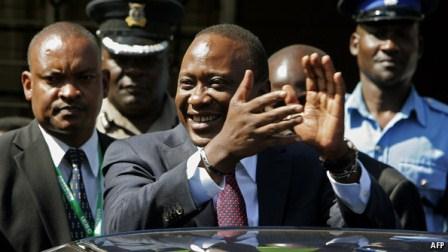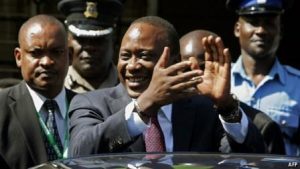Blog
Did the Obama Administration Influence Kenya’s Elections?

For good or for bad, the question going around now is whether the United States tried to play its hand to make Raila Odinga the president of Kenya. This was Odinga’s fourth try to win the Kenya presidency.
The issue about U.S. and European influence appears to linger and is still probably a big news story as the Kenya results head to the country’s Supreme Court.
Moreover, Western media, including many in the U.S., are taking heat for a negative projection about the Kenya elections. We’ll look at this in a moment.
As far as peddling influence to decide the outcome of the Kenya vote, noted African journalist, Joseph Warungu, alumni of the BBC Africa news division, now a Knight Journalism fellow told the BBC the following:
“US intervention in Kenya’s presidential election strengthened the resolve of voters to propel Uhuru Kenyatta into the presidency.”
Warungu moderated one of the first presidential debates in Kenyan history.
According to the BBC article on this matter, the Obama administration, through Johnnie Carson, U.S. assistant secretary of state for African affairs, played into the hands of many Kenyans who construed his statements about elections choices and their consequences, as an attempt to influence the March 4 vote.
But in a video message a month before the elections, President Obama stated, “We all know what makes for successful elections. Kenyans must reject intimidation and violence and allow a free and fair vote.”
On March 9, Secretary of State, John Kerry, issued the following statement.
“Foremost in our minds is a desire to see the will of the Kenyan people expressed freely and fairly. We strongly urge all parties and their supporters to peacefully address any disputes with today’s announcement by the Independent Electoral and Boundaries Commission through the Kenyan legal system, rather than on the streets”
If this is the case, where did the influence of the Kenyan vote come from?
Is the International Criminal Court (ICC)-which has indicted Kenyatta for his role in post-election violence in 2007, to blame for intimidating the Kenyan people? Time magazine’s Alex Perry thinks the manner in which the ICC conducted itself has earned it accusations of bias.
“And the manner in which the 2007–08 tribal violence was beamed around the world by the Western media, deterring tourists and overshadowing the story of an increasingly less impoverished, and more healthy, sophisticated and self-reliant, Kenya, also drew widespread resentment,” Perry wrote in a March 9 Time column.
Perry also cited a March 5 Council on Foreign Relations (CFR) conference call in which former Assistant Secretary of State for African Affairs, Jendayi Frazer seemed to ‘chide” ambassador Carson for his remarks about the Kenya elections. In another discussion of the Kenya election results with PBS’s Gwen Ifill, Frazer stated that the case against Kenyatta is “problematic” and it seems to be “falling apart.”
Speaking about outside influence in the elections, international media organs are taking a fair share of the blame for supposedly focusing more on the potential for a negative outcome in the Kenya vote.
On Public Radio International (PRI) “The World” program on March 14, Kenyan native Mukoma Wa Ngugi, a professor at Cornell University, told host Marco Werman that Western media reported more about the negative things taking place, largely ignoring what was done right in the Kenya elections.
“Starting with the presidential debates, with the civil organizations, and so on and so forth, there has been a large push for peace. But I think when you looked at the international media reportage, that large push for peace ends up getting lost or being hidden behind the larger and, I guess, more interesting story of violence.”
Wa Ngugi took issue with the media narrative of the Kenya vote, saying that he is not trying to sideline some of the negative outcomes, such as the twelve people who lost their lives in the process.
He explained to Warman, “So the violence is there. But I think it’s been a question of how the story is being told.” He also blamed the ICC for conspiring with western media and governments in helping create an “anti-Kenyatta” atmosphere.
One consequence of this is the decision by Kenyan authorities to crackdown on foreign media in the country, according to PRI. According to The Economist, “Kenya’s normally feisty media have been supine after their owners agreed to avoid coverage that might incite ethnic passions. In place of analysis, television stations broadcast pre-recorded messages urging peace.”

